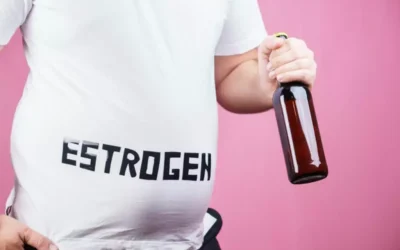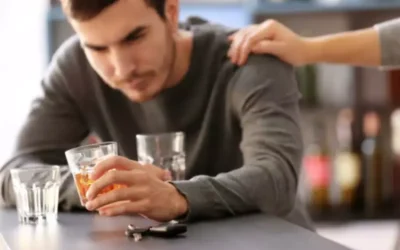Content
In your goodbye letter to drugs, describing the effects abuse has had on your life can motivate change. Having problems with the law, strained personal relationships, damaged reputation, and damaged self-esteem are some effects we don’t want to acknowledge. I don’t miss not remembering anything.
- I felt like if I had you by my side I could conquer the world.
- I don’t miss being absent from holidays with my family because I was too sick to go.
- Join a recovery support group of people just like you.
- A goodbye letter to drugs can be the symbolic acceptance that you are ready to move on to a better life.
- I don’t miss you trying to kill me on a daily basis.
I want things, I want different feelings, I want changes in others, I want, I want, I want. I believe that desire is no different for anyone – for people with addiction and for those without. I had to admit my complete powerlessness over you in order to release your grip on my existence. But as I bear witness to you ripping through the lives of my friends, my family members, and my patients, I find it nearly impossible to surrender again.
A Goodbye Letter To Addiction
I don’t miss falling down the stairs and almost breaking my neck. I don’t miss getting onto the highway going the wrong way at 3 a.m. I don’t miss being absent from holidays with my family because I was too sick to go.

My insight into your world is only through observation. I do not wish to walk in your shoes, but I can tell you what it is like to walk in mine – if you are serious about recovery. In 2010, Ron Grover wrote an open letter to his son — and anyone with addiction — that still moves us today. Writing a letter to your child who is struggling with dependence or addiction can be cathartic for both of you.
How to Write An Impact Letter: A Step Toward Recovery
I think that is just a part of the disease, especially in early recovery. A “Dear John” letter is an activity that’s commonly used during rehab. It is an expressive medium to communicate your thoughts and feelings related to your former drug or alcohol use.
Butch began counseling in 1989 and worked with Cumberland Heights throughout the 90s doing Aftercare, contract work and individual counseling. Dr. Sledge is a sought-after speaker in the industry, talking about the critical how to write a goodbye letter need to treat both the mind and body of those struggling with substance use disorder. In addition to working for Cumberland Heights, Dr. Sledge is an assistant professor at the University of Tennessee College of Medicine.
It’s Not Too Late to Get Help
The first step is to know that your questions and feelings are normal. The next step is to talk to someone about those feelings. I will pray to god to give you peace, mindfulness, and courage to stop your path of destruction in the lives of others, but as for me, I am done. I am moving on and forward with my life. I know this may sound abrupt, like this is coming out of nowhere, but it is imperative for me to sustain myself.
I don’t miss the pancreatitis flare ups, although unfortunately the pancreatitis will stick with me for life. I don’t miss waking up at all hours of the night, reaching for you at my bedside and having to drink some of you in order to control my convulsing body. I don’t miss not being able to put my mascara on because my hands were too shaky.
I expected that rehab would be like going to the doctor and that I would be shamed and reprimanded for my addiction. Substance use disorders impact over 21 million Americans each year, but only 10 percent of people get the life-saving treatment they need. One of the major barriers to treatment is stigma. She earned a doctoral degree in clinical psychology from Alliant International University (CSPP). Her current research focuses on family issues, teen behavioral issues, teen substance abuse, mental health, and relationships. If you write your letter as part of an addiction treatment group or in a counseling session, you may be able to share it with others.
What words can you use instead of addiction?
INSTEAD SAY: Substance use disorder (SUD), alcohol and drug use disorder, active addiction, problem use, non-medical use, unhealthy use, risky use, harmful use; person struggling with substance use, person with substance use disorder, person who suffers/suffered from addiction.
I started a new job, got a girlfriend, and started to forget you. You threatened me with illness, depression, anxiety. I reached a point where I wouldn’t go anywhere without you. The other people I was with were bothered by that, and they began to avoid me because they didn’t like you — and they no longer liked the “me” I had become. You told me good things about myself.
Dear Addiction,
The silver lining to our relationship is that I am stronger than I’ve ever been. My relationship with you, Addiction, made me a trophy of grace. Relationships have been restored, and new ones have begun. I’ve said goodbye to relationships that held me back and hello to ones that push me to be the best version of myself. With the help, love, and support of God, as well as my family and counselors, I crawled out of the dirt and fought back. Then, one day, you pushed me into that grave and began covering me up.

The answers to these questions can reveal many things such as feeling isolated and, thus, vulnerable. In our experience, parents/guardians are best able to detect if something is amiss. I wanted to take this opportunity to welcome you to ARCH Academy, the Adolescent Program of Cumberland Heights. I am certain that it was not in your family’s plans for your son to come here.
Our counselors are available 24/7 and would be glad to be of assistance. It’s okay to be as open and honest as you’d like and feel free to explain specific traits or moments that exemplify your feelings. Be sure to specify that your love is unconditional. As a parent, child, spouse, partner or friend, your affection shouldn’t rely on https://ecosoberhouse.com/article/choosing-sobriety-gifts-10-great-ideas-to-consider/ any particular set of criteria, and it’s important your loved one knows this. In the introduction of a letter, state who you are and your relationship to the subject of an intervention. Describe the person in your own words that relate to how you view them — both before and after addiction — as well as what your relationship means.

You constantly blocked me from doing any of the things I wanted to do. In that sense, you quickly became my worst nightmare. Because of you, I ended up doing things that I never in a million years thought I would be capable of doing. You turned me into what I hated more than anything else. You robbed me of my independence and freedom. Of course, the downside of heroin is even worse than cigarettes.